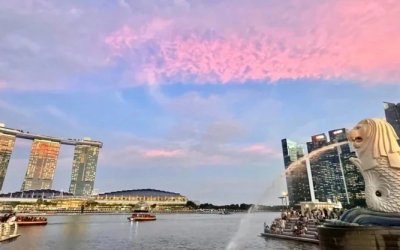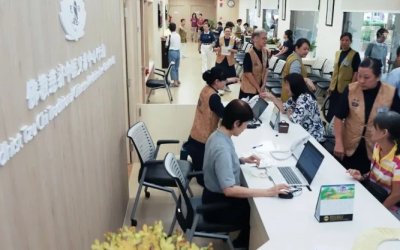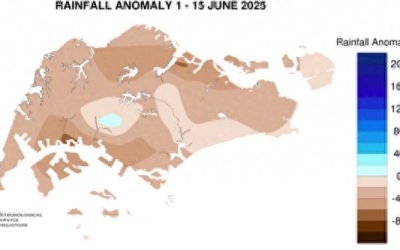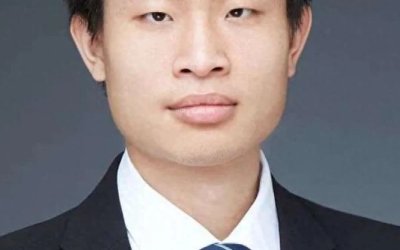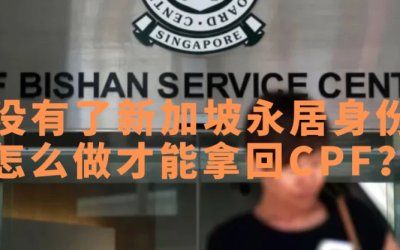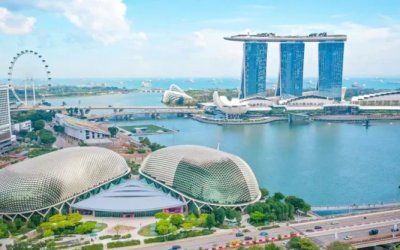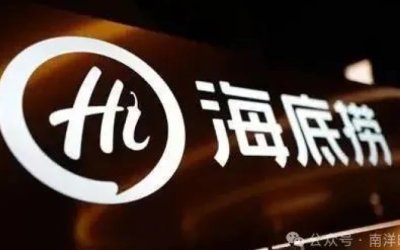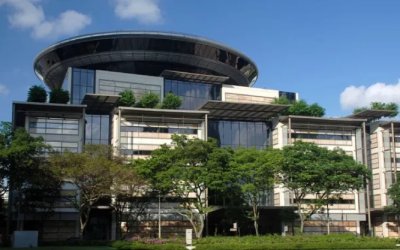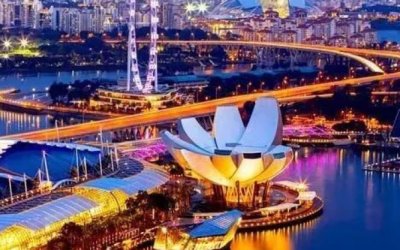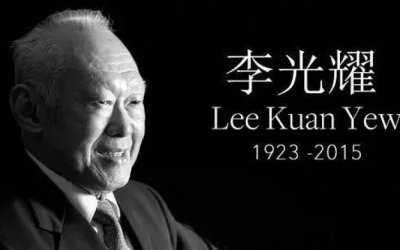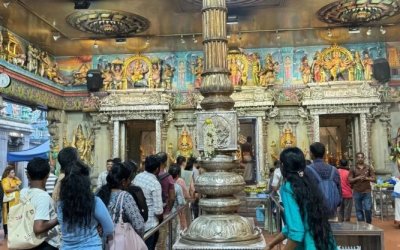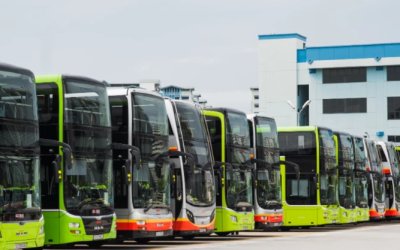跨越不同领域
建设“参与城市”大学
2023.11.21 SMU X RUC
⊙ 跨越不同领域,建设“参与城市”大学--SMU在2023年绿色金融相关全球论坛上分享独特观点
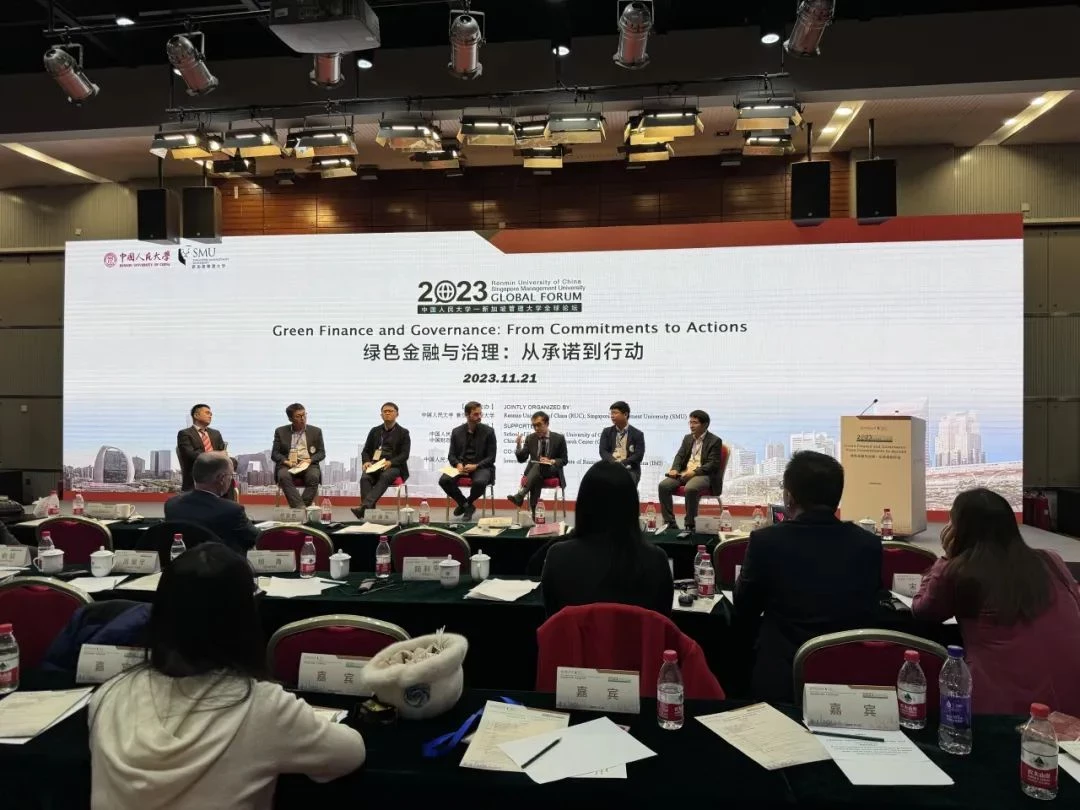
2023年11月21日,由新加坡管理大学(SMU,简称新大)和中国人民大学(RUC,简称人大)联合主办的“绿色金融与治理:从承诺到行动”全球论坛在北京召开。论坛汇集了来自新加坡、中国及世界各地的专家、业界领袖以及学界代表。在论坛上,新大代表与其他现场嘉宾一同分享和交流了有关“绿色金融与治理”的独到的见解和经验。
在开场致辞中,新大教务长柯莫西(Timothy Clark)代表新大对人大表示感谢,对出席此次论坛的嘉宾表示热烈欢迎。随后,他表示,“新加坡管理大学的愿景是致力通过跨学科和有影响力的研究来应对社会挑战和问题,这与我们的三大战略重点——数字化转型、可持续生活和亚洲增长是一致的”,学校也一直积极寻求与新加坡和周边地区具有相似愿景的伙伴建立合作。柯莫西教授还提出大学在驱动变革中的作用,特别是在学术研究和产业专业知识方面的整合,以及大学在推动绿色金融发展中的贡献。
新大李光前商学院副教授、Ho Bee可持续发展管理讲席教授、新加坡绿色金融中心联合主任梁昊教授以“绿色金融:机会与风险并存”为主题发表演讲。他在演讲中呼吁采取转型融资,即向传统“棕色企业”提供资金以帮助其提高能源效率和逐步向“绿色企业”转型;他介绍了一个可以评估企业的净影响值的框架模型,通过将不同影响因素进行定量评估和权重设计,综合考虑对金融、社会和环境的影响,从而指导投资决策。此外,梁教授还分享了新加坡绿色金融中心与大学合作的项目,旨在整合不同的评估标准,创造一个完整的影响力评估和报告框架。他强调了通过国际合作,将不同领域进行设值、定量和数据生成,为企业的可持续发展和实现零碳排放目标提供支持。
新大李光前商学院战略与创新助理教授、全球红树林信托基金和Handprint.tech公司的联合创始人和董事Simon J.D.Schillebeeckx教授在圆桌讨论中表示,新加坡非常善于内化并吸收其他国家的经验,并将其转化为本土经验;在ESG治理方面,新加坡已经迈出了几个关键性步骤。他还提到了欧洲在气候变化领域的领导力,更强调了全球合作是实现可持续发展不可或缺的要素。他认为,即使欧洲能够实现碳中和,没有其他国家的支持和碳足迹的减少,也无法解决全球气候变化问题。在回答关于ESG和政府目标的问题时,Simon教授强调了政府在可持续发展目标中的重要角色。他认为政府应该负责管理气候等核心领域,并指出ESG和政府目标可以相互促进。同时,他关注政府在金融机构最后执行和评估方面的责任,强调了问责的必要性。
在会后的采访中,新加坡管理大学合作与交流总监林姗姗教授指出,新大通过其深入的研究和教学,旨在让学生对亚洲各种议题有更深刻的了解。而作为一所“参与城市”的大学,新大不仅关注社会中的重大挑战,而且期待未来能与更多中国顶尖大学合作。这样的合作将为双方提供机会,在全球论坛等平台上与中国学术界和行业领袖进行对话,共同探讨环境可持续发展、数字转型等重要议题。这种协作不仅对新大的国际声誉有着积极的提升,也有助于推动深入研究和解决当今社会面临的诸多挑战。
本次全球论坛的召开,为解决社会焦点问题和推动学术界、政策制定者和商业界的合作提供了前沿平台,新大代表在论坛上发表的观点和见解,展现其作为一所“参与城市”的大学的抱负——专注于跨学科专业的构建和有影响力的研究,应对当今社会所面临的各种挑战。这不仅表明了新大的前瞻性眼光和广阔的学术格局,也凸显了其为新加坡建设智慧国所作出的不懈努力和卓越贡献。
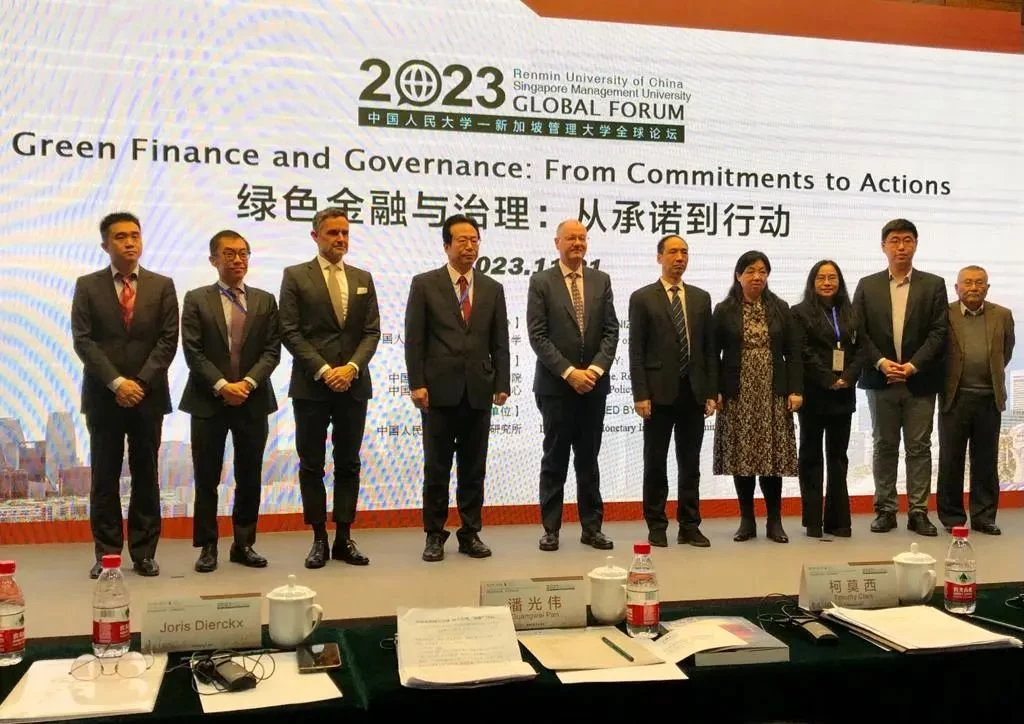
⊙ Spanning Diverse Domains to Build an Engaged City University - SMU shares Unique Perspective at Global Forum 2023 in Beijing
The "Green Finance and Governance: From Commitments to Actions" Global Forum, co-organised by Singapore Management University (SMU) and Renmin University of China (RUC), was concluded on 21 November, 2023. The Forum brought together experts, industry leaders and academics from Singapore, China and around the world. SMU representatives shared their insights and experiences on the theme with other guests and attendees at the Forum.
In the opening speech, SMU Provost, Prof Timothy Clark, representing SMU, expressed gratitude to RUC and a warm welcome to the forum participants. He said, "SMU's vision is dedicated to addressing societal challenges and issues through interdisciplinary and impactful research that are aligned to our three strategic priorities, namely Digital Transformation, Sustainable Living, and Growth in Asia." SMU actively seeks collaborations with partners in Singapore and neighboring regions who share similar visions. Prof Clark also highlighted the role of the university in driving change, especially in integrating research and industry expertise, as well as the university's contribution to advancing green finance development.
Prof Hao Liang, Associate Professor of SMU Lee Kong Chian School of Business (LKCSB), Ho Bee Professorship in Sustainability Management and Co-Director of Singapore Green Finance Centre, made a keynote speech on the topic of "Green Finance: Opportunities and Risks at the Same Time". In his speech, he called for the adoption of transition financing, i.e. providing capital to traditional "brown businesses" to help them improve energy efficiency and gradually transform into "green businesses". He introduced a framework model for assessing the net impact value of an enterprise, which guided investment decisions by quantitatively evaluating and weighting different impact factors, taking into account the financial, social and environmental impacts. In addition, Prof Liang shared projects of Singapore Green Finance Centre in collaboration with universities, which aimed at integrating different assessment criteria to create a complete impact assessment and reporting framework. He emphasised the importance of international cooperation, setting values for different fields, quantification, and data generation to support businesses' sustainable and zero-carbon emission goals.
During the panel discussion session, Prof Simon J.D.Schillebeeckx, Assistant Professor of Strategy and Innovation of SMU LKCSB, Co-founder and Director of the Global Mangrove Trust and Handprint.tech, said that Singapore is very good at internalising and absorbing the experiences of other countries and translating them into local experiences; in terms of ESG governance, Singapore has taken several key steps. He also referred to Europe's leadership in the area of climate change and emphasised the indispensability of global cooperation for sustainable development. He argued that even if Europe could achieve carbon neutrality, global climate change could not be solved without the support of other countries and the reduction of their carbon footprint. In response to a question about ESG and government goals, Simon emphasised the important role of governments in the SDGs. He argued that governments should be responsible for managing core areas such as climate, and noted that ESG and government goals can be mutually reinforcing. He highlighted the importance of accountability in the final execution and evaluation by the government, emphasising the need for governments to play a role in achieving a better green finance transformation.
In the interview after the meeting, Prof Sun Sun Lim, SMU Vice President (Partnerships and Engagement), pointed out that SMU aims to provide students with a deeper understanding of various issues in Asia through its in-depth research and teaching. As an engaged city university, SMU not only focuses on the major challenges in society, but also looks forward to cooperating with more top Chinese universities in the future. Such collaborations will provide opportunities for both parties to engage in dialogues with Chinese academic and industry leaders on platforms such as global forums to discuss important issues such as environmental sustainability and digital transformation. This collaboration will not only be a tremendous boost to the international reputation of SMU, but will also help promote in-depth research and solutions to the many challenges facing society today.
The Global Forum provided a platform to address key societal issues and promote collaboration between academics, policymakers and the business community, and the perspectives and insights expressed by SMU representatives at the Forum demonstrated SMU ambition to be an "engaged city" university - one that focuses on building interdisciplinary specialisms and impactful research to address the challenges faced by society today. This not only demonstrates SMU’s forward-looking vision and broad academic landscape, but also highlights its tireless efforts and contributions to building a Smart Nation for Singapore.


